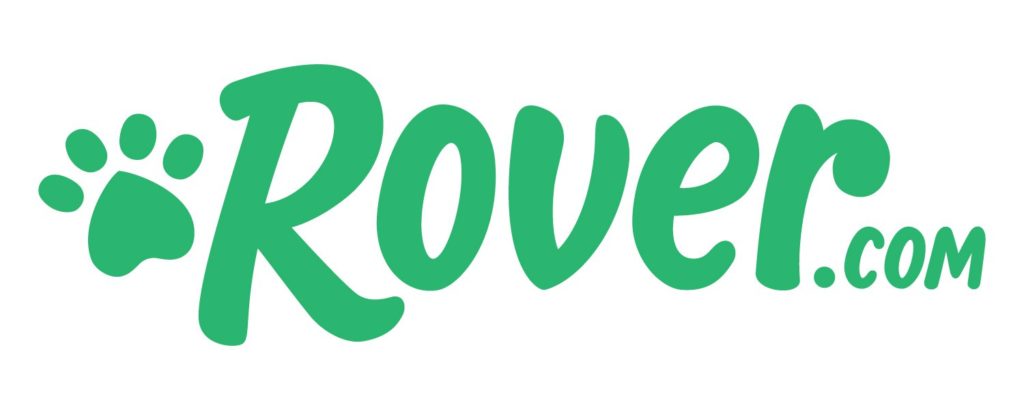Online Marketplaces

Online marketplace is the business model of the decade. Companies like Uber, Airbnb, TaskRabbit, UpWork, Rover, and Zeel have been popping up to offer services that connect service professionals and freelancers to clients. But how is success on these platforms measured? And who is really winning?
For the marketplace, a win is owning the relationship with clients. They want those clients coming back to the marketplace for more services for as long as possible. What marketplaces fear most is that clients will get attached to one service provider and that service provider will try to work with the client outside of the platform. In order to protect against client poaching, online marketplaces do everything they can to block service providers from establishing a relationship with clients.
Most marketplaces do not allow service providers to exchange or save the contact information of the client. They require all communication to happen within the marketplace – no excuses. They monitor service provider communications with clients and punish anyone who tries to self-promote. If a service pro doesn’t obey the rules, they are immediately kicked off the platform. Rover is one of the many online marketplaces that operates this way.
Rover is a matchmaking service that connects pet professionals to dog owners. Whether clients are looking for a dog walker, groomer, sitter or boarder, there are experienced service professionals who are available in their area to care for their dog. It is a brilliant concept and an amazing opportunity for a pet professional. It is the simplest way to get started in a new petcare business. All you need to do is:
1. Create a profile with a photo of yourself and different dogs that you have cared for. At minimum include a picture of your own dog or your best friends dog!
2. Select which zipcodes you would like to cover and what type of dog care services you are interested in providing. Make sure to only choose those locations that are close enough to you that you won’t be late for appointments and select services that you really love to offer because clients will expect consistent punctuality and lots of pictures of you delivering those services.
3. Complete the service provider identity and background check to get approved to be a pro on the platform. Clients want to be sure you won’t kidnap their puppy and you haven’t been arrested for abusing pets before.
4. Write a heartfelt description of yourself, your experience, why you love taking care of dogs, and what clients can expect from working with you. Be authentic, upbeat, and share details about your professional history. It will help you build trust on the platform faster.
5. Bonus: Once you have a few jobs under your belt, make sure to ask your past clients for testimonials and reviews. He who has the most 5 star reviews wins! Rover’s algorithm will show your profile more often to people looking for services in your area. And when those clients see your profile, the 5 star reviews will be irresistible. The more 5 star reviews you have, the more you’ll get booked.
If you follow the above playbook to the letter, you will get great results and a fast start in the dog care business. That being said, there is a catch!?! All bookings and business done through Rover comes at a steep price to you. Rover takes twenty percent (20%) of everything you make. Your business is completely in Rover’s hands. You are not truly independent =( And the people you serve are not really your clients. Regardless of how easy Rover makes it to get your business going, don’t forget your long term goal of achieving your income goals and being your own boss.

The Big Picture & Hidden Costs
When you really compare the cost of working for an online marketplace like Rover over being completely independent, you realize just how expensive it is. We have outlined just a few of the hidden costs of becoming a pet sitter or dog walker on Rover.
Poor client retention
These platforms can match professionals and clients very well, but client retention is a BIG problem. They are constantly offering promotions to try and keep clients onboard. They have discounts, special benefits, and loyalty programs. All of these incentives keeps clients from reaching out to you directly after you have delivered amazing services for them. Maybe this isn’t an issue for you, if you can continue to get matched to them on Rover. But what happens when a new pet sitter or dog walker signs up in your area and sets up a Rover profile? Rover will promote them over you to expand their pool of active pet professionals in that location. You lose that client in an instant. No matter how great your services are and the client’s experience was, Rover controls what clients see and when they see it. It doesn’t take much for your hard work to be completely forgotten and overlooked in a huge virtual marketplace like Rover.
No online visibility
Let’s say you are a 5 star performer on Rover. Reading your reviews and testimonials bring tears to the eyes of potential clients and your repeat client booking stats are legendary. Your reputation is amazing, but noone outside of Rover will know about it. Rover works hard to ensure Google, Facebook, Yelp, etc. cannot see your information outside of its platform. They don’t want you to be recruited away from Rover to another site. So they don’t share information about all of the great work you have done outside of Rover. They want clients to have to search on Rover to find you – exclusively. That’s great for Rover, but what about you? You are an amazing dog walker or pet sitter and the world should know about you and what you do! But you don’t have any reviews on Facebook, none on Google, and your profile is unclaimed on Yelp. So the hundreds, maybe depending on where you live, the thousands of clients who are searching for pet professionals every day in your area will never find you because they aren’t searching on Rover. They prefer to search and buy online from Google and Amazon. Being dependent on a single platform like Rover really limits your reach and ability to grow.
Twenty percent (20%) fee too high
All businesses require startup costs, but over the long haul as you start to make a profit you slowly get this investment back. With platforms like Rover, they eliminate the cost of getting started. Phew! They only charge you when you start to make money from client bookings. However, the problem is Rover keeps charging you forever. It’s like a permanent tax on your business. As long as you are using their platform, you are always paying them an additional fee for helping you get started. Enough is enough – at some point, you shouldn’t have to pay that fee. Say you have a goal of making $10,000 of income in your first year. Rover will take $2,000 of your income, right off the top. Yikes!.
Loss of client data, relationships, and future income
Not only do you become dependent on Rover to help you acquire clients and manage your busy schedule, you can’t earn money without it. If you were to ever leave Rover, you would be losing all of your clients, booking data, reviews/testimonials, and credit card payment information. The longer you stay on Rover, the more you have to lose if you leave. Your future income is basically controlled by their platform.
When you take into account all of the costs associated with being a pet sitter or dog walker on Rover, you may be giving up too much. If you are on Rover now or thinking of joining Rover and wondering about other options, we have included some tips about what you should do when you decide to “spread your wings” and serve some or all of your clients outside of Rover.

Take Control & Enjoy Your Freedom
If you aren’t quite sure that you have the time, energy and commitment to go it alone, your best bet is to stick to platforms like Rover that will support you for a hefty fee. Assuming you know what you are getting into as you explore going independent, consider the following as you set up shop. Here’s a snapshot of what you need to do to become independent from Rover and get that 20% fee back in your wallet. Keep in mind, it isn’t an all or none deal. You can always continue to work with clients on Rover and clients outside of Rover.
Build a client list
Whether it’s simply family, friends or possibly a handful of clients that you added to your contact list from Rover, nurture those relationships! Repeat bookings with clients on these platforms solidifies the relationship and keeps them interested in continuing to work with only you.
Use your own booking site
There are many online tools (widgets, booking buttons, etc.) out there that you can simply add to your website, facebook page, IG page, or simply text to clients so they can self-book. There are also plugins such as Weeba and BookME. Mobile apps such as PocketSuite or SquareAppointments can also help you easily schedule with clients.
Accepting credit card payments
Since you won’t be taking payments through a platform like Rover, you need some way of getting paid. Thankfully, there are dozens of apps that can help you accept client payments! Apps like Square allow you to easily process payments and get paid by your clients. PocketSuite acts as an all in one app to help you with client management, scheduling and payment processing. This reduces your costs from 20% down to a low, flat 2.9% + 30¢… lowest of all payment apps.
Marketing your business
Marketing yourself and your services is becoming easier and easier to do every year with more user friendly technology. It is confusing to know which platforms to advertise on Facebook, Google, YellowPages, CraigsList, and, and, and. It is even more confusing figuring out how to build compelling ads and getting a good return on your marketing dollars. Rover makes it easy for you. They advertise for you, but they also control who sees your profile and who doesn’t, which limits your new client growth potential. PocketSuite’s and Shopify’s systems integrate Google AdWords and makes it super easy for you to launch a campaign, set a budget, and acquire new client leads. It’s a great return on investment. Anyone that visits your campaign and shows interest is auto-magically added to your new client leads list, so you can easily follow-up.
Transitioning from Rover to your own business can be a scary thing to do. You should definitely take it one step at a time. There is no rush. Start working with one or two clients offline while you continue to use Rover, so you can get comfortable with the booking and payments side of running a service business. Then you can wean yourself off of Rover. Overtime, you will depend on Rover less and less for client leads and bookings. Before you know it, you will have enough clients to completely leave Rover!
PocketSuite has hundreds of Pros that all started where you did. Our community of Pros are always happy to help you with the process of becoming your own boss and achieving financial independence. We are always working to help you succeed and grow! Reach out if you have any questions (we’d love to hear from you)! Text us @ (415) 841-2300
Like this article? You’ll love our guide on how to generate leads for service businesses in 2022, and of course our Frustrations with Square article!




